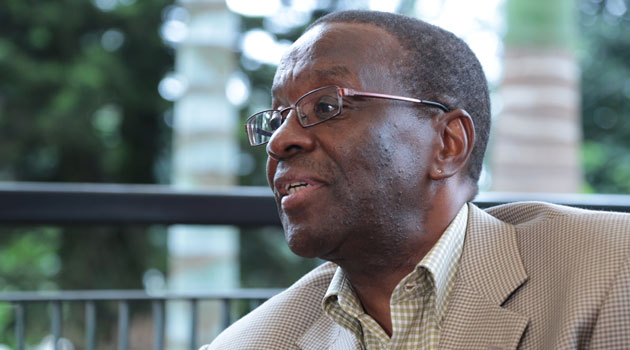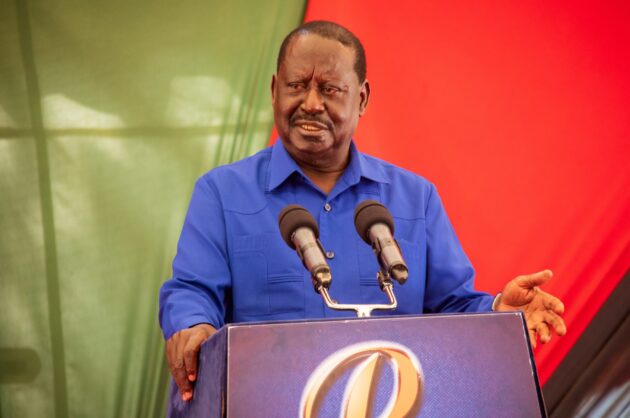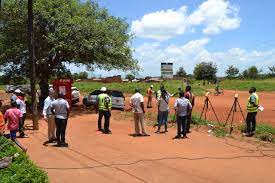- Details
- Julius Mbaluto
- East Africa
- 99
Today Viva Technology is announcing the Top 45 startups shortlisted for the third edition of the AfricaTech Awards, a pan-African initiative that identifies and supports innovative impact startups across the continent.
For the third year running, the AfricaTech Awards aim to highlight innovative startups contributing to the development of the African continent in three categories: Climate Tech, Health Tech and FinTech. A new addition to this year's FinTech category is E-Commerce, a sector that could create around 3 million new jobs on the African continent by 2025.
VivaTech and its Knowledge Partner, Deloitte, selected the startups in the running for the 2024 awards from more than 310 applications.
The E-Commerce & FinTech category attracted the highest number of entries (148), followed by Climate Tech (86) and Health Tech (79). The addition of E-Commerce to the FinTech category is generating a huge amount of enthusiasm, partly because of the importance that the sector is likely to have in the coming years. Indeed, e-commerce in Africa is expected to reach more than 83.5 million consumers by 2029, an increase of +56%.
Of the startups in this ranking, 42% are founded or co-founded by a woman, and nearly 90% have at least one woman on their board of directors.
Kenya, Nigeria and Egypt respectively take the podium as the countries with the highest participation rates among the 37 African countries represented. This winning trio has occupied the top three places in this ranking since 2022.
"In this new shortlist for the AfricaTech Awards, Africa demonstrates all the richness and dynamism of its startup ecosystem and positions itself as the continent to watch for tech and digital innovation. Viva Technology is delighted to make this African reality known to the whole world and to connect it to the stakeholders who will enable it to reach its full potential. This has been one of VivaTech's commitments since its inception, and this year it will once again be one of the key themes of our event," explains François Bitouzet, Managing Director of Viva Technology.
Aymen Mtimet, Partner Advisory at Deloitte Francophone Africa, adds: "Against a global backdrop of slowing investment, African ecosystems are continuing to improve their global positions, thanks in particular to the continent's demographic dividend. 2024 will undoubtedly be an exciting year, thanks to the dynamism of the continent and the development of new trends, particularly in Deeptech and AI."
Following a second evaluation by a panel of experts made up of partner c-level executives, investors and incubator CEOs, the three best startups in each category will have the opportunity to take part in the 2024 edition of Viva Technology, which will take place from 22 to 25 May in Paris.
These startups have been selected for the tangible impact their activities have on society or the environment, the development of an outstanding innovation, the scalability of their business on the African market, and the establishment of a diverse and experienced staff.
The winners will be announced at the AfricaTech Awards ceremony taking place Friday 24 May on Stage 1 in the presence of Edouard Mendy, the patron of this year's event. As the winner of both the UEFA Goalkeeper of the Year and The Best FIFA Goalkeeper of 2021 – and the first African goalkeeper in football's history to win both awards – Edouard Mendy is also deeply committed to the development of the African tech sector, in which he is a prominent investor.
"I am deeply honored to support the AfricaTech Awards organized by VivaTech. Showcasing innovation and technology from Africa is crucial to its development and global reach. As a supporter, I am excited to contribute to this great initiative that celebrates Africa's talent and potential in tech. Together, we can create a future where Africa is positioned as a leader in innovation, and I look forward to seeing the extraordinary achievements that will emerge from these prizewinners." - Edouard Mendy
The 45 startups retained for the rest of the competition (listed in alphabetical order)
The top 15 startups in the E-commerce & FinTech category, sponsored by Airtel and Cassava Technologies, are:
agriBORA - Kenya
AgroCenta - Ghana
Chari - Morocco
Dojah - Nigeria
Futa - Cameroun
Happy Pay - South Africa
Inclusivity Solutions - South Africa
Jem - South Africa
Leja - Kenya
Ozow - South Africa
PremierCredit - Zambia
Pricepally - Nigeria
SecondSTAX - Ghana
valU - Egypt
YMO - France / Guinea
The top 15 startups in the Climate Tech category are:
RubilabsVet (Agpreneur) - Nigeria
FLOEWS - Nigeria
Hysper Tech - Zambia
Immobazyme - South Africa
INNOVAHYPER Technologies - Rwanda
InterSIP International - Senegal
IPREN (Smart’O) - Niger
MazaoHub - Tanzania
Octavia Carbon - Kenya
Rethread Africa - Kenya
Schoolz - Egypt
Sensor Networks - South Africa
Solar Dev - Burkina Faso
SOSO CARE - Nigeria
Zebra CropBank - Nigeria
The top 15 startups in the Health Tech category are:
AfyaRekod - Kenya
Bulamu Bridge AI (My FemiHub App) - Uganda
Famasi Africa - Nigeria
Healthtracka - Nigeria
Clinicaa (INFINITUS) - Togo
Pharmacy Marts - Egypt
Remedial Health - Nigeria
Rology - Egypt
STAR UP KOBIKA NA NDAKU - Democratic Republic of the Congo
SURGiA - Egypt
Thalia Psychotherapy - Kenya
TIBU Health - Kenya
UltraTeb - Egypt
Zencey - Ivory Coast
Zuri Health - Kenya











